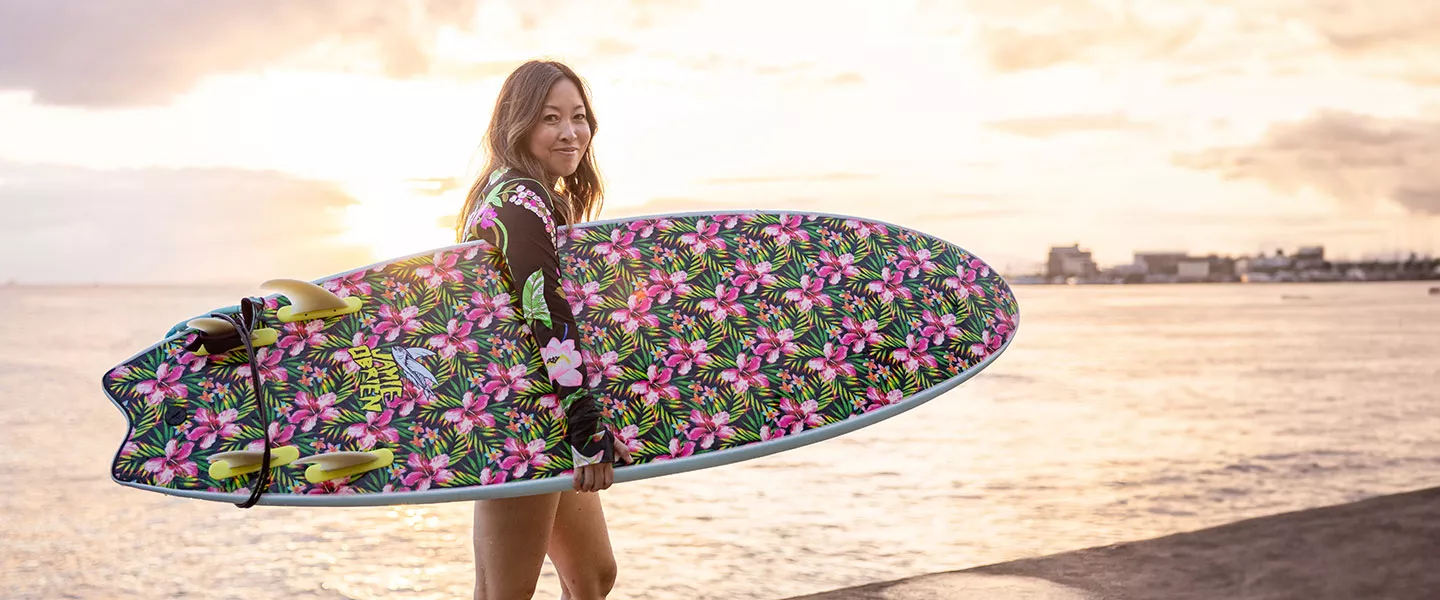Robyn Frost: A Journey of Strength and Determination

Diagnosed on April 2, 2021, Robyn Frost shares her story of resilience and the importance of taking control of one's health.
It’s an undeniable truth in healthcare: Regular screenings for cancer, heart disease, and other serious conditions save lives.
So, how did Robyn Frost's early diagnosis help her in her battle against breast cancer?
Robyn Frost, a Territory Manager for Hologic’s Surgical division in Hawaii, was diagnosed with breast cancer on April 2, 2021, after calcifications were detected on a Hologic 3D™ mammogram. This diagnosis came merely a year after a completely clear 3D™ mammogram. Despite the pandemic causing many to delay care, Robyn is thankful she didn't.
We asked her about her experience.
What kept you going during this difficult time?
"I remember being in utter disbelief and crying when I was told that I had breast cancer. But after about 30 minutes of feeling sorry for myself, I went to work laying out my plan to beat this. Sharing really helped me. I told all my physician friends, the nurses and technologists I work with, my friends and family. The compassion I received and support from everyone really lifted me up. It also helped to be a sounding board for my course of treatment," Robyn explains.
“Conversations with survivors and compassionate individuals helped me navigate the toughest times and reinforced the vital importance of annual mammograms. This experience drives my passion for working at Hologic, where I can contribute to advancements that encourage early detection and save lives.”
What advice would you give to other women?
"The advice I would give to other women facing breast cancer is to take control of your care. Find out about the technologies available and decide what is best for you. Seek out the doctors you want to work with, ask about new technology and therapies. The journey is certainly different for everyone and nuanced with many variables, but there are so many options to consider. It’s your body, your life, take control of the journey. You’re not in the passenger seat, be the driver."
Is there anything else you’d like to share about your story?
"I found that talking with people was the best therapy. There are a lot of survivors out there and a lot of compassionate people. It helped me to get through the days and allowed me to connect on a deeper level. When I felt alone, scared, and vulnerable, I reached out and each time, each person in their own way encouraged me to be strong.
"I don’t have any family history of breast cancer and I’ve always been very healthy, so this came as a complete surprise. It was also only a year after a clean mammogram. The cancer was very aggressive and my course of action would have to be very different if I had delayed getting my annual mammogram."

